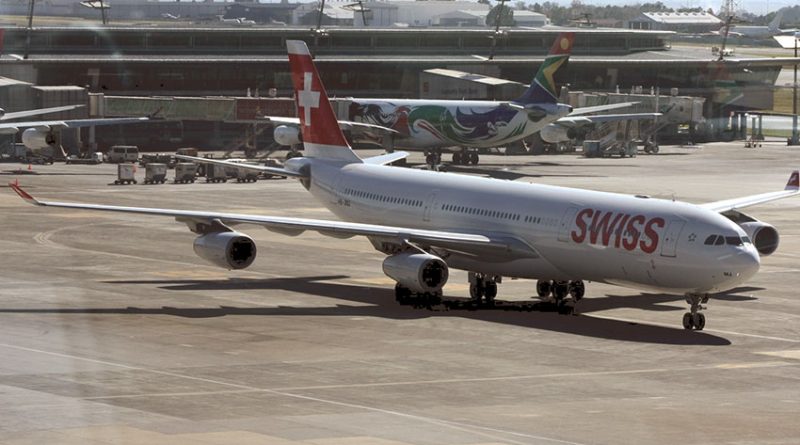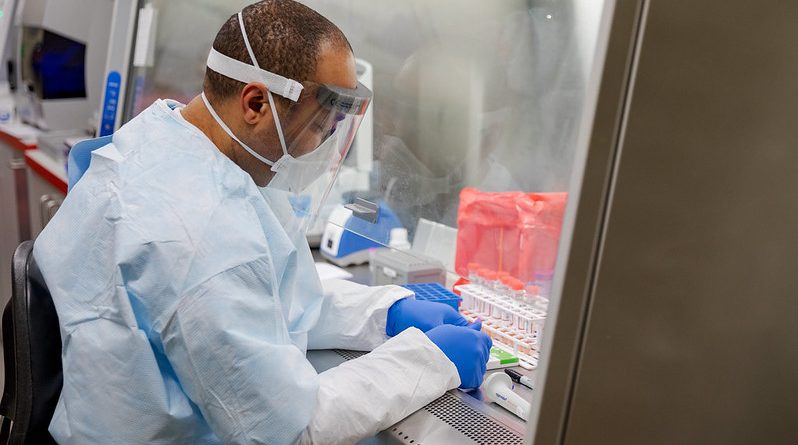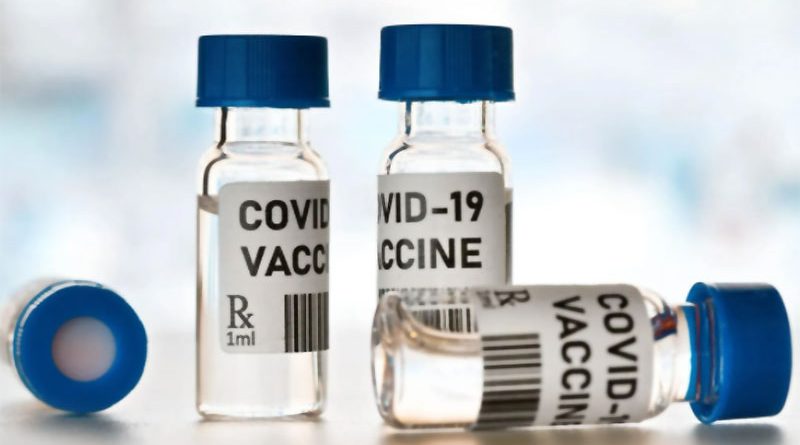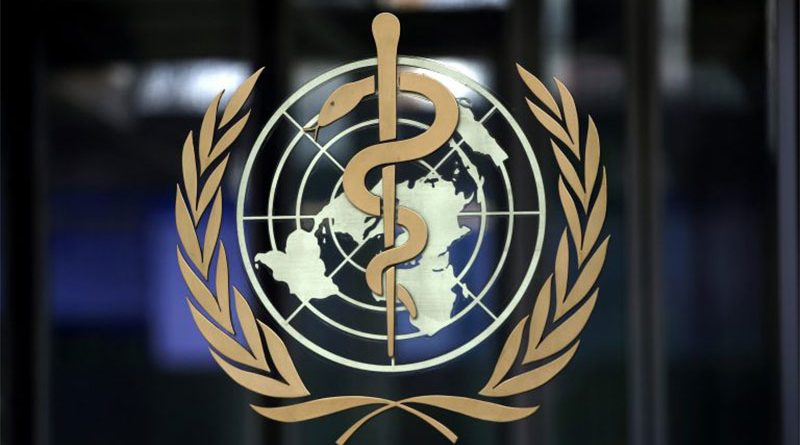SWITZERLAND will allow flights to Britain and South Africa to resume from Thursday, allowing visitors from the two countries where a new strain of coronavirus has emerged to return home for Christmas.
The flight connections, which were suspended at midnight on Sunday, December 20, can temporarily resume from Thursday, December 24, the government said on Wednesday.
The flights can also be used for Swiss people stranded in Britain and South Africa to return home, it added.
Special protective measures will be applied to people who are still in quarantine to reduce the risk of the virus spreading. The government also said it would work with regional governments to coordinate a special transfer service.
Because of fears people returning to Switzerland may bring the new variant of coronavirus, airlines flying from Britain and South Africa have to apply for a temporary exemption from the flight ban.
Switzerland, which started rolling out a COVID-19 vaccine on Wednesday, was among several countries which banned travel from South Africa and Britain because of fears over the new strain which is more infectious than previous variants.
Switzerland has also ordered South African and British visitors who arrived after Dec. 14 to go into a 10-day quarantine. The Federal Office of Public Health (BAG) has been tracing the mobile phones of British and South African visitors and has sent them text messages.
“Please help us to prevent the spread of the new coronavirus variant and render yourself into a mandatory 10-day quarantine counted from the date of arrival. Do not leave your room or residence and avoid all contacts,” BAG said in a tweet, asking people to call its hotline or visit its website.
In cases of non-compliance, a penalty of up to 10,000 Swiss francs ($11,240) can be imposed, BAG has warned.
Source – Thomson Reuters Foundation.
THE World Health Organization cautioned against major alarm over a new, highly infectious variant of the coronavirus that has emerged in Britain, saying this was a normal part of a pandemic’s evolution.
WHO officials even put a positive light on the discovery of the new strains that prompted a slew of alarming countries to impose travel restrictions on Britain and South Africa, saying new tools to track the virus were working.
“We have to find a balance. It’s very important to have transparency, it’s very important to tell the public the way it is, but it’s also important to get across that this is a normal part of virus evolution,” WHO emergencies chief Mike Ryan told an online briefing.
“Being able to track a virus this closely, this carefully, this scientifically in real-time is a real positive development for global public health, and the countries doing this type of surveillance should be commended.”
Citing data from Britain, WHO officials said they had no evidence that the variant made people sicker or was more deadly than existing strains of COVID-19, although it did seem to spread more easily.
Countries imposing travel curbs were acting out of an abundance of caution while they assess risks, Ryan said, adding: “That is prudent. But it is also important that everyone recognises that this happens, these variants occur.”
WHO officials said coronavirus mutations had so far been much slower than with influenza and that even the new UK variant remained much less transmissible than other diseases like mumps.
They said vaccines developed to combat COVID-19 should handle the new variants as well, although checks were underway to ensure this was the case.
“So far, even though we have seen a number of changes, a number of mutations, none has made a significant impact on either the susceptibility of the virus to any of the currently used therapeutics, drugs or the vaccines under development and one hopes that will continue to be the case,” WHO Chief Scientist Soumya Swaminathan told the briefing.
The WHO said it expects to get more detail within days or weeks on the potential impact of the highly transmissible new coronavirus strain.
Source – Thomson Reuters Foundation.
THE COVAX alliance which aims to secure fair access to COVID-19 vaccines for poor countries said on Friday it now had agreements in place for nearly 2 billion doses, roughly doubling its supply, with the first deliveries due in early 2021.
The initiative, co-led by the GAVI vaccine alliance, the World Health Organization (WHO) and the Coalition for Epidemic Preparedness Innovations (CEPI), said it aimed to deliver 1.3 billion doses of approved vaccines next year to 92 eligible low- and middle-income economies.
All 190 economies that have signed up to COVAX will “have access to doses in the first half of 2021, with first deliveries anticipated to begin in the first quarter of 2021 – contingent upon regulatory approvals and countries’ readiness for delivery,” it said in a statement.
“Today’s announcements offer the clearest pathway yet to end the acute phase of the pandemic by protecting the most vulnerable populations around the world.”
New agreements announced on Friday include an advance purchase agreement with AstraZeneca for 170 million doses and a memorandum of understanding for 500 million doses from Johnson & Johnson.
Richard Hatchett, CEPI’s chief executive, said the COVAX alliance was also in talks with Pfizer and BioNtech – whose COVID-19 won regulatory approval in the United States last week and in Britain this month. The group is also in talks with Moderna, which expects to have its COVID-19 vaccine approved shortly, he said.
Getting vaccine doses to poor countries is a huge challenge, with wealthy countries determined to vaccinate their entire populations as quickly as possible. COVAX is funded by donor countries, multilateral lenders such as the World Bank and private charities such as the Bill & Melinda Gates Foundation.
The WHO director-general, Tedros Adhanom Ghebreyesus, said Friday’s announcement of extra COVID-19 vaccine doses for COVAX was “fantastic news and a milestone in global health”.
GAVI’s chief executive, Seth Berkley, said the goal of providing a global, equitable distribution of COVID-19 vaccines was “alive and well”. But he added: “We still need more doses, and yes, we still need more money.”
COVAX was launched by GAVI and the WHO in April to ensure access for COVID-19 shots to poor and middle-income countries.
Source – Thomson Reuters Foundation.
WORLD Health Organization (WHO) is to send an international team led by the U.N. agency to China in the first week of January to investigate the origins of the coronavirus pandemic.
Mike Ryan, WHO’s top emergency expert, said international experts would go to the central Chinese city of Wuhan, where the first cases of COVID-19 were detected last December.
“We still don’t have a take-off date because we are working on the logistics around visas and flights. We do expect the team to be going there in the first week of January. There will be quarantine arrangements,” Ryan told a news conference.
“The team will visit Wuhan, that’s the purpose of the mission. The point of the mission is to go to the original point at which human cases were detected. They’ll fully expect to do that,” he added.
WHO officials also said that three-quarters of cases were occurring in the Americas, and thanked Canada for committing to donate vaccine doses to other countries.
Maria Van Kerkhove, WHO technical lead on COVID-19, said the agency was in touch with South African researchers who identified a new variant of the SARS-CoV2 virus.
Source – Thomson Reuters Foundation.




